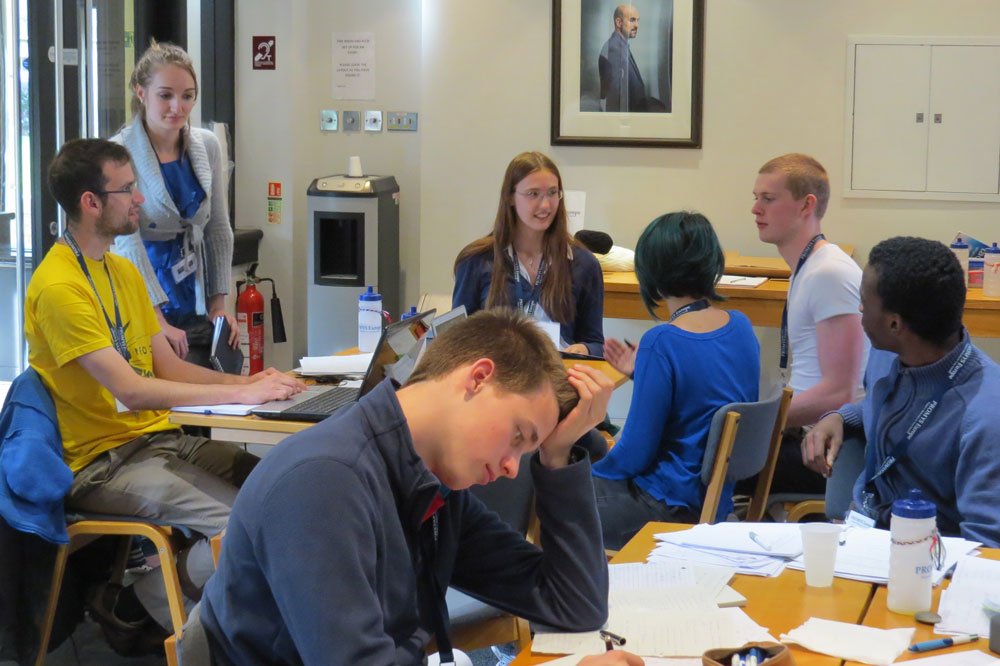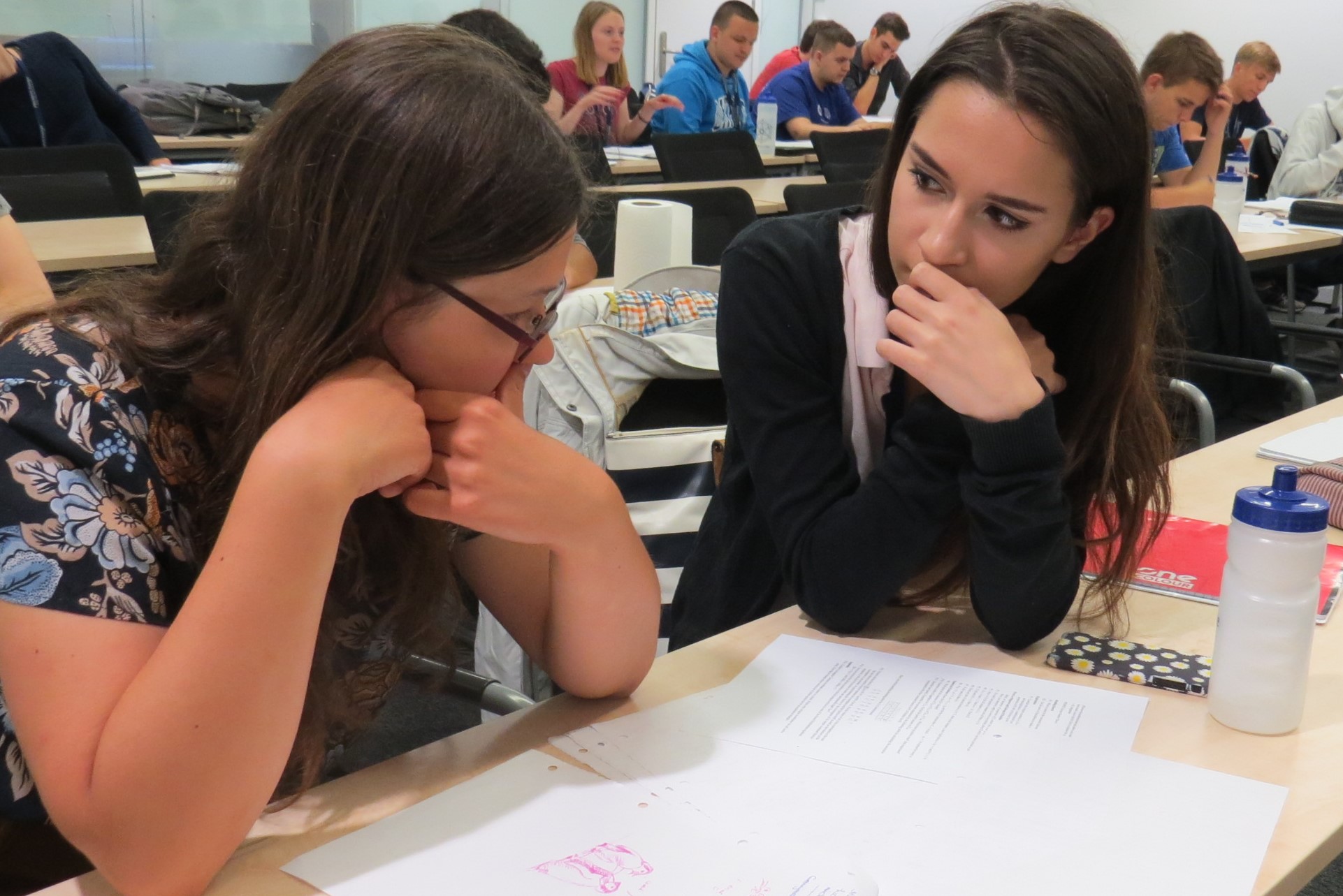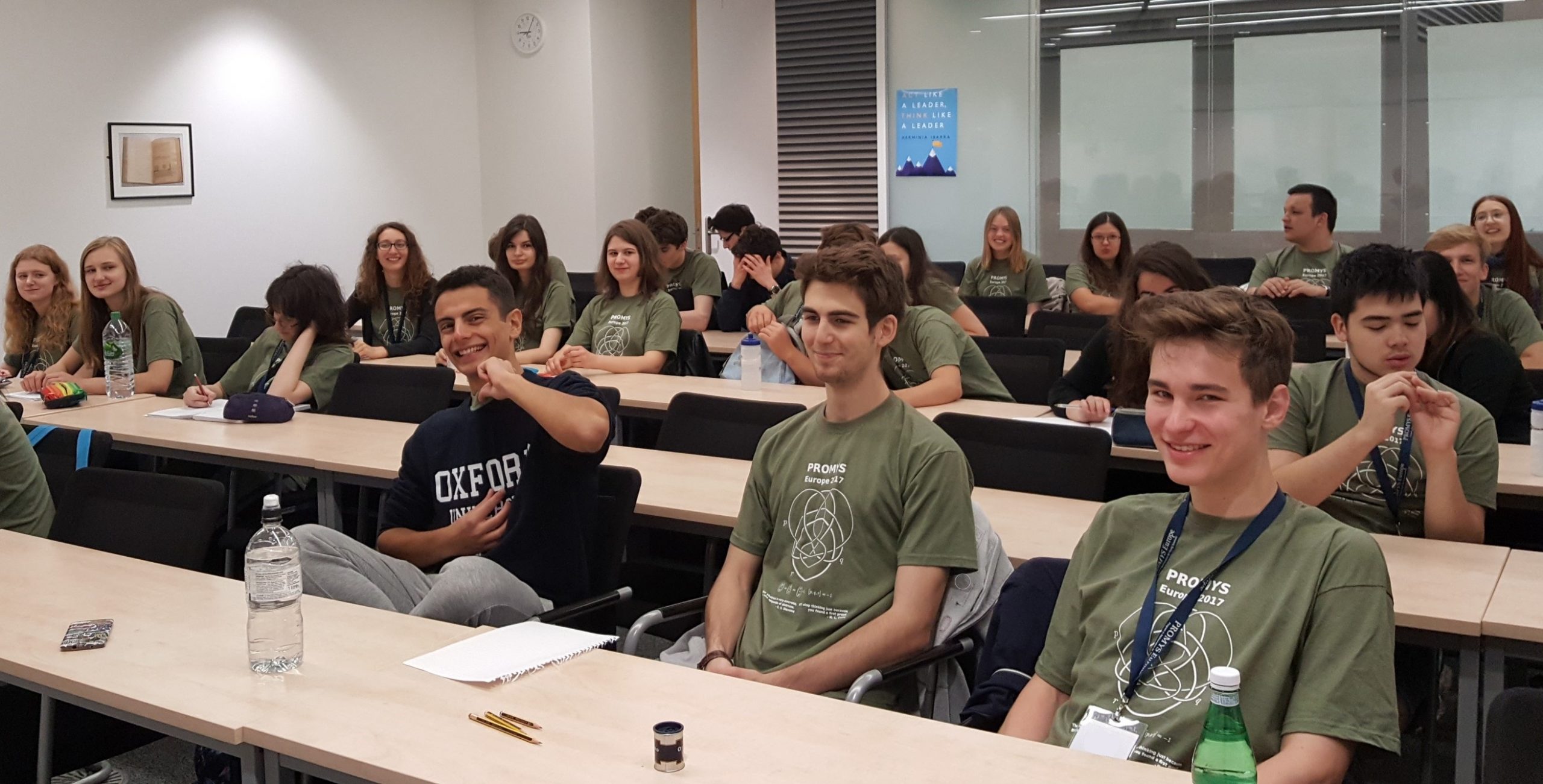Counsellors – FAQ

Counsellors – Frequently Asked Questions
The counsellor’s role is central to PROMYS Europe. Counsellors encourage, supervise, and mark the work of the students; and they organize the social activities of the programme. The counsellors are mathematical guides and, in essence, run the programme (“Counsellors Rule!”) with the support of the experienced Head Counsellor and the guidance of the faculty. PROMYS Europe is an intense immersive experience, and the counsellors keep a protective eye on the students to ensure they are safe and happy.
Counsellors are important role models. The students witness the counsellors and adult professionals engaging actively, intensely, collaboratively, and joyfully in creative mathematical endeavours. PROMYS Europe proves to participants that mathematics is a creative and collaborative enterprise, that there is a vibrant community they can choose to join, that mathematics need not be a solitary activity, and that members of the community give each other social and intellectual support. Many alumni have told us that this exposure revolutionized their attitudes toward having a career in mathematics.
A defining characteristic of PROMYS and PROMYS Europe is that the programme is designed for the mathematical engagement and development of the counsellors as well as the students. It is key that the very talented undergraduate mathematicians have enough variety, challenge and progression to continue to engage themselves in increasingly significant mathematical activity from one summer to the next. Counsellors are asked to supervise the work of three or four students and have time to pursue their own mathematical endeavours as well. Counsellors are invited to study mathematics independently by participating in advanced seminars and interacting individually with the faculty. In addition, the counsellors are invited to organize minicourses, seminars, and lectures on themes of their own choosing in order to introduce students and fellow counsellors to a broad variety of mathematical ideas. Activities of these kinds are important to the health of the PROMYS Europe programme and will be supported to the greatest extent possible.
Counsellors tell us they come to PROMYS, and return to PROMYS, for the same reasons that the students tell us they come to PROMYS and return to PROMYS: the mathematics and the people.
It is not so much through the daily mandatory number theory lectures that PROMYS habits of mind are developed as in the extended hours every day that the first-year students work on their carefully crafted daily number theory problem sets – working on their own or collaborating with others. PROMYS Europe faculty, counsellors, and returning students provide encouragement and feedback, inspiration, instruction, and mathematical tools; they don’t provide solutions or even hints. The problem sets encourage students to design their own numerical experiments and to employ their own powers of analysis to discover mathematical patterns, formulate and test conjectures, and justify their ideas by devising their own mathematical proofs. These activities help refine the skills of conjecture, analysis, proof, and research – providing firsthand (and often first time) experience of the mechanics of real research. The learning goals of PROMYS Europe extend considerably beyond the valuable foundation in number theory to the demonstration through firsthand experience of the rewards of delving deeply.
Often for the first time in their lives, the talented young PROMYS Europe participants find themselves tackling mathematics that is beyond their immediate grasp; are exposed to mathematics that is beautiful and daunting; are held to exacting standards of rigour and precision; meet others with similar levels of talent and passion; and learn, not just as students, but as scientists. PROMYS Europe is non-competitive, and students learn from one another. Many then go on to teach and mentor in the PROMYS way, by giving others the tools to think for themselves.
PROMYS Europe aims to create an authentic experience of doing mathematics within a community of mathematicians having various levels of experience and expertise, every one of whom is actively engaged in significant mathematical activity appropriate to his or her individual level of expertise. In this way, first-time participants are introduced to a spectrum of individuals, from their talented, but still inexperienced, fellow first year students, through undergraduate and graduate students, and connecting with seasoned research mathematicians.
We consider all applications independent of year in university, and it is not uncommon for us to invite first-year university students to be counsellors. Undergraduates in their final year are also eligible. We encourage all interested undergraduates to apply; all applications will be given full consideration. The main requirements are a high level of mathematical achievement, mathematical maturity, potential for mathematical growth, and interest in working with talented secondary school students.
No! Topics are as varied as the mathematical interests of the counsellors.
75% of PROMYS counsellor alumni who are old enough for graduate school and for whom we have up-to-date educational data (93%), have, or are working on, a doctorate. 80% of those doctorates are PhD’s in Mathematics.
Just as the counsellors are role models and advisors to the students, so the research mentors, faculty, and visiting mathematicians are role models and advisors for the counsellors. And these connections are often lasting because the PROMYS alumni network is very active. With over 140 alumni professors and nearly 300 alumni with PhD’s in Mathematics, the alumni community is a professional as well as a personal resource.
Many PROMYS counsellors choose to participate in PROMYS for multiple summers. Many continue to return as visitors, guest speakers, research mentors, or instructors. We look forward to the students and counsellors of PROMYS Europe developing similar habits of long-term involvement with the programme.



